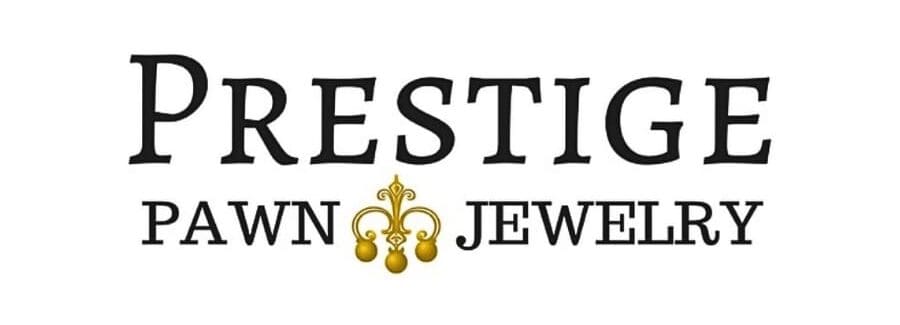Pawning gold can be tricky business if you don’t know the ropes. With “5 Common Mistakes in Gold Pawn Transactions”, you’ll learn how to avoid undervaluing your precious metal and why knowing its true market worth is crucial.
We’ll guide you through reading loan terms carefully. You’ll also get tips on vetting pawnbrokers to ensure they’re legitimate—and why understanding redemption policies could save your gold item from being lost forever.
Table Of Contents:
- Understanding Gold Pawn Transactions
- Not Knowing the True Value of Your Gold
- Overlooking the Terms of the Pawn Loan
- Failing to Research Pawnbrokers
- Redemption Policies
- Conclusion
1-Understanding Gold Pawn Transactions
Pawning gold can be more complex than it appears, knowing the laws and regulations is essential. Knowing the difference between a pawn transaction and a buy is crucial to reading this article. If you want to learn more about the difference between a pawn or a buy transaction read “Maximizing Your Pawn Shop Experience” or this page about buying, pawning and selling your gold.
2-Not Knowing the True Value of Your Gold

Think you know what your gold item is worth? Guess again. Many pawn-goers walk in armed with only their hopes, not facts. To get ahead, use current market values.
The price of gold fluctuates, and so does its value in different forms—be it coins, bars, or intricate jewelry pieces. The market sets today’s gold prices, but there’s more to your item’s value than just weight times spot price. The purity of your gold factor into its value too.
Pure 24-karat gold fetches top dollar while alloys mixed with other metals are less valuable. Pawn shops often use scales that measure down to the gram; precision is key here. They’ll assess not just weight but also gold content (purity)—10k, 14k, 18k. If it sounds complex, that’s because it can be.
Researching Gold Pawnbrokers for Beginners
You wouldn’t hand over family heirlooms to just anyone at a dinner party without knowing them first—the same goes for pawn shops. Do some detective work: read reviews online or check out their licensing.
A credible broker will have transparent policies and clear-cut procedures about how they handle pawns—and won’t mind discussing them either. Pawn shops often use scales that measure down to the gram; precision is key here. They’ll assess not just weight but also gold content (purity)—10k, 14k, 18k.
Avoiding Emotional Overvaluation
We all think our belongings are special—but sentiment doesn’t translate into dollars and cents in a pawn deal. Grandma’s ring might be priceless to you emotionally yet hold modest resale value due to style or condition factors affecting demand.
This tough love approach ensures realistic expectations when pawning items steeped in personal history but remember: sentimental attachment shouldn’t cloud judgment about fair monetary compensation for your precious metals.

3-Overlooking the Terms of the Pawn Loan
Borrowing cash against your necklace? Don’t let excitement fog up those reading glasses. Understanding loan terms keeps surprises at bay and puts you in control—much like having insider info on stock trades before Wall Street wakes up.
Digging into interest rates and repayment schedules, missing these details could mean losing your precious metal for good if default happens.
We’ve all heard it but do we listen? Those terms and conditions aren’t just there for show—they’re important. They outline everything from how much interest you’ll be paying out each month to what happens when you can’t pay. Doing your homework will ensure a fair deal and rewarding experience.
Potential Consequences of Default
Avoid defaulting on a pawn loan like avoiding spoilers for your favorite TV show—it ruins everything. Think about it: missing payments could mean higher fees stacking up against you quicker than dirty dishes after Thanksgiving dinner. Even worse? You might lose ownership rights over that gold piece altogether.
To keep control of both your nerves and assets, mark payment due dates down as if they were hot dates—you wouldn’t forget them then, would ya?
Important: Use a calculator or online tool to mark payment dates like they’re unmissable events.
4-Failing to Research Pawnbrokers
Think you’ve found a good deal with the first pawn shop that flashed its neon ‘We Buy Gold’ sign? Pump the brakes. Not all gold buyers are created equal, and skimping on research could lead you down a path lined with less cash in your pocket and more regret.
Picking a reputable pawnbroker is like choosing a barber; you want someone who won’t scalp you. Before walking into any pawn shop, do your homework. Start by checking if they’re licensed – it’s not just about legality but also about legitimacy. A license means they follow state regulations which protect both parties involved.
Checking Credibility
A trustworthy broker isn’t shy about their reputation—so hit up online reviews on sites like Google or check out the Better Business Bureau for any red flags or golden stars they may have earned over time.
Social proof speaks volumes too, so don’t be afraid to ask around for personal recommendations because sometimes word of mouth trumps what’s written on paper—or screens.
The Importance of Being Licensed
Licensing isn’t just some bureaucratic hoop-jumping—it helps make sure that scales used to weigh your precious metals meet official standards so that when it comes time to say goodbye to grandma’s gold brooch, you’re getting every penny it’s worth National Pawnbrokers Association.
In fact, these licenses often require regular audits and compliance checks which can give sellers peace of mind knowing their assets are being valued fairly—and legally.
An established presence often indicates stability and experience but doesn’t discount those fresh faces either—they might offer competitive deals as newcomers eager to build clientele.
Important: Don’t rush to pawn your gold; do the legwork and research pawnbrokers. Make sure they’re licensed, check their credibility with reviews, and ask for personal recommendations.
5-Redemption Policies
Picking up your gold item is called redemption. There are rules and procedures for your item to be redeemed. For starters, remember to bring your identification and cash balance due. Redemption procedures and times vary from shop to shop but typically range between one to four months—so mark your calendar.
Avoid Surprises During Redemption
To avoid surprises when redeeming your gold items, communication with your pawnbroker is key—it’s like having GPS for this journey. Ask questions until things click because understanding these nuances ensures smooth sailing (or should we say ‘redeeming’?). It also helps build rapport with brokers who may cut some slack if repayment hits choppy waters.
Last piece of advice: keep all paperwork safe—receipts aren’t just pesky scraps of paper; they’re golden tickets home for your assets. When all is said and done (and paid), walk away wiser and maybe even ready for another round—if ever needed—in this ancient art of pawning.
Important: Don’t get lost in the gold pawn maze—know the rules, like redemption periods and fees. Keep clear communication with your broker and save your loan agreement.
Conclusion
So, you dove into the world of gold pawn transactions. You now know that knowledge is golden when it comes to your treasures.
Remember: get the scoop on what your gold’s really worth. Terms and conditions? Always vet your pawnbroker—no exceptions.
Avoid those 5 common mistakes to avoid in gold pawn transactions, and keep a sharp eye on redemption policies.
If you’ve absorbed these nuggets of wisdom, pawning won’t be such a puzzle anymore. Your heirlooms are safe—and so is your wallet!
Don’t wait any longer – take the next step and visit Prestige Pawn & Jewelry today! Our experts are here to assist you with your pawn, buying, and selling needs. Experience the prestige and exceptional service that sets us apart. Contact us now or visit our store to begin your journey into the world of luxury and value.

